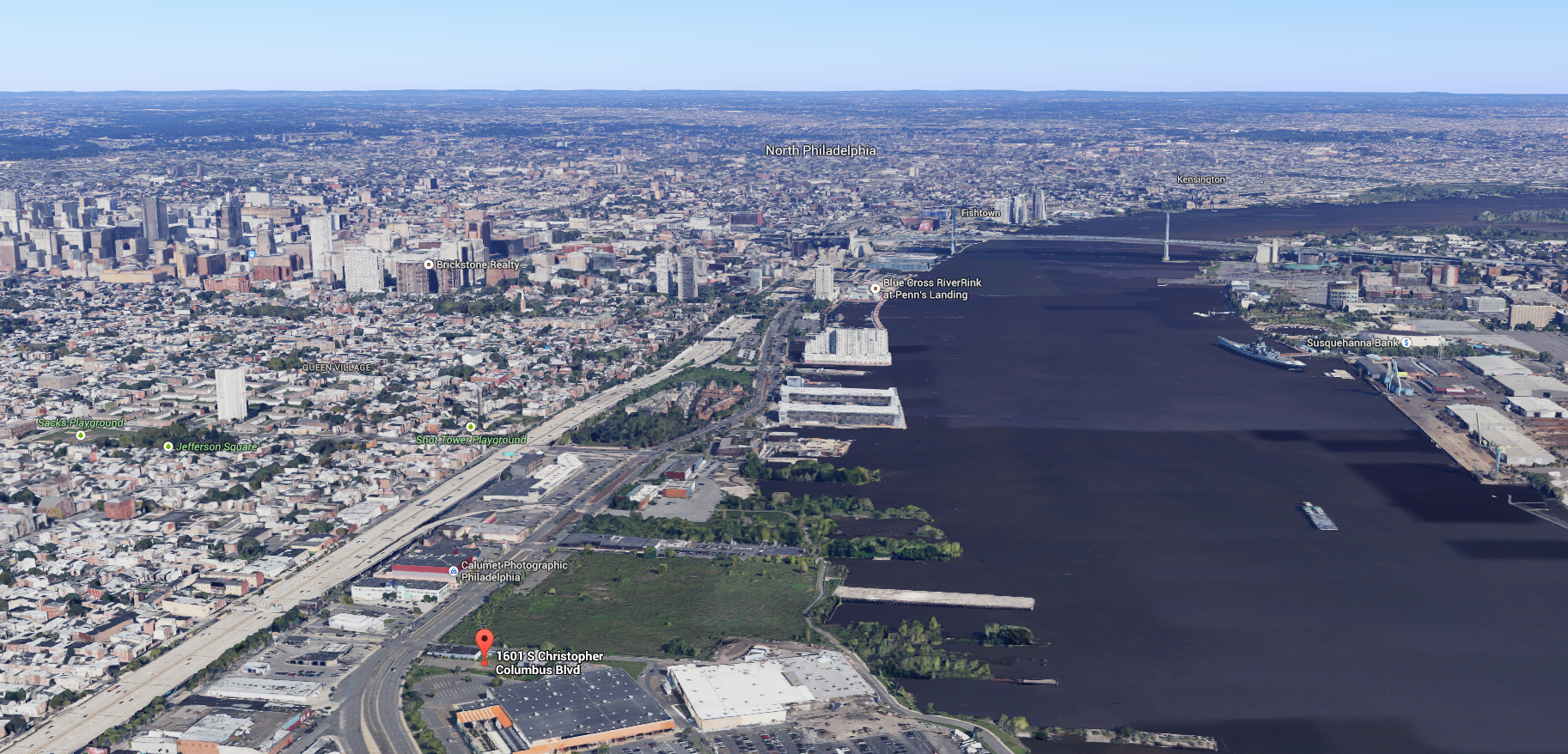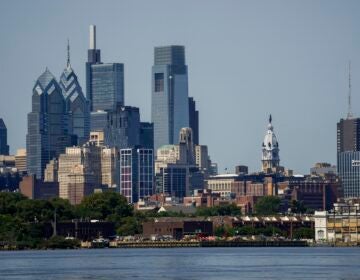AAA to pitch riverfront repair and service center to planning commission Tuesday

Pennsport and Central Delaware advocates will argue that such an auto-centric use is clearly counter to the city’s long-term waterfront goals. It wouldn’t be allowed under current zoning, but AAA got its application on the last day of the old rules.
AAA will Tuesday make its pitch to build an auto service and repair center at 1601 S. Columbus Blvd. to the Philadelphia City Planning Commission.
Representatives from Pennsport Civic Association and the Central Delaware Advocacy Group are expected to testify that the commission should not approve the plan, since auto repair shops do not fit the goals of the Central Delaware Master Plan, which include creating a more walkable, less auto-oriented waterfront with active, mixed use developments and better ties to city neighborhoods.
“This is not subtle,” CDAG Chairman Matt Ruben said at Tuesday’s CDAG hearing. “This is exemplary of what the Master Plan says you shouldn’t be doing, especially on the water side.”
CDAG member Rene Goodwin, who lives in Pennsport and will be one of two people testifying for Pennsport Civic Tuesday, requested and got CDAG’s support in opposing this development at the site. Goodwin said AAA has approached Pennsport about reaching some sort of “arrangement,” but Pennsport isn’t interested in this use at this site. “We fear this would be setting a precedent” for projects that go against the city’s – and Pennsport’s – goals for the waterfront, she said.
Pennsport Civic President Jim Moylan has previously noted that Pennsport does not oppose AAA or this use in general, and would talk with them about locating the business elsewhere, but not on the river.
AAA could not get a by-right permit for their proposed service center today, as it’s a prohibited use under the Central Delaware Overlay. They once held such a permit, however, granted to them in January by L&I based on the fact AAA applied for it in June of last year – the day before the current overlay went into effect. Pennsport Civic, CDAG, and city planners cried foul, noting that an interim overlay was in place before the new one was, and L&I didn’t require AAA to follow the terms of that overlay, either.
At first, L&I told objectors they’d have to appeal to the L&I review board (Pennsport Civic filed, and has not withdrawn its appeal, just in case). But in February, L&I changed its mind and told AAA it would be revoking the permit in 10 days, and AAA had the choice of reapplying under the new code, which would eventually require a trip to the zoning board of adjustment, or to follow the terms of the previous overlay.
AAA chose the latter, which brings us to the PCPC hearing next week. The interim overlay did not specifically prohibit this use, but it did require that anyone proposing a project on the river side of Columbus or Delaware Ave. between Oregon and Allegheny avenues submit a plan of development to the PCPC. Commissioners are required to judge projects by how well or poorly they fit with the Master Plan goals, and, as Ruben noted at CDAG, they have “binding authority” on whether a project goes forward.
Ruben noted that during previous POD reviews for riverfront projects, commissioners worked with applicants to re-shape projects that didn’t meet some element of the Master Plan, and then gave approval. But “this is uncharted territory,” he said. “Unlike with other projects, this is not a height or design issue. This is a use which is, putting aside truly heavy industrial…the worst conflict.”
Commissioners won’t make a decision Tuesday, said Luke Butler, chief of staff for PCPC Chairman and Deputy Mayor Alan Greenberger. This presentation is informational only; commissioners will vote on the plan at a later meeting. PCPC staffers make recommendations that include whether they believe commissioners should vote yes or no on projects. Butler said the staff “will develop its position informed by (Tuesday’s session) and informed by the community meeting.” That meeting between the developer and the community is “statutorily required,” he said. Staff will make its recommendation and the commission will vote at a later PCPC meeting.
The creation of the Central Delaware Master Plan was overseen by the quasi-city Delaware River Waterfront Corporation, which also worked closely with city council and planning in the creation of both the interim zoning overlay and the current one that replaced it.
Goodwin Tuesday expressed concern that “DRWC has not stepped forward in a very clear, strong fashion” to speak against the AAA proposal, when it is “absolutely in conflict” with their waterfront work.
In a previous email conversation with PlanPhilly, Moylan also expressed disappointment that DRWC hasn’t been more involved in the fight. “I called them to make sure they would attend (Tuesday’s meeting) and testify,” he said. “It’s kinda their responsibility to defend the overlay, so they better be there!”
They will. “We are opposed to the AAA plans based on what we understand them to be and will be present to testify to that at the hearing on Tuesday,” DRWC Planner/Project Manager Karen Thompson said. “The project is not in keeping with the goals of the master plan.”
Thompson has previously told PlanPhilly that she expected DRWC would testify against the proposal to whichever body was making the pertinent decisions on this case (more below on which body would decide hasn’t always been clear). She said in the past car repair and service at this location would not only set a bad precedent regarding the master plan and overlay, but would cost the city the opportunity to have something more in line with its goals at a key entry point to the Central Delaware.
CDAG Vice Chairman Joe Schiavo said Tuesday that DRWC just saw the details of the AAA plan yesterday, which is why “they hadn’t taken a strong position on it” previously. He said Thompson told him it called for “many garage doors along the road edge – exactly the sort of thing they wouldn’t want to see.” After the meeting, Schiavo said the doors would face Tasker Street, one of the streets set aside as a key connection between neighborhoods and the water.
An AAA spokesman said he could not provide information by posting time today.
CDAG discussed the progress, or lack thereof, of several other projects at Tuesday’s meeting.
Schiavo noted that a zoning permit was pulled in march for the Marina View development near the Ben Franklin Bridge. Since the project received PCPC plan of development approval in September 2012, this struck Schiavo as late. He discovered that approved plans of development “have no natural sunset,” so any outstanding are good indefinitely. The zoning permit generally requires a developer to get a building permit within a year, but current state law allows for two, three-year extensions. “So basically the zoning applies for the next seven years, whether they build anything or not?” Rubin asked. “Yes,” said Schiavo. “Let’s hope they build something,” Rubin said.
For more, on AAA, Marina View, and several other private developments proposed for the Central Delaware, watch the video below.
WHYY is your source for fact-based, in-depth journalism and information. As a nonprofit organization, we rely on financial support from readers like you. Please give today.




